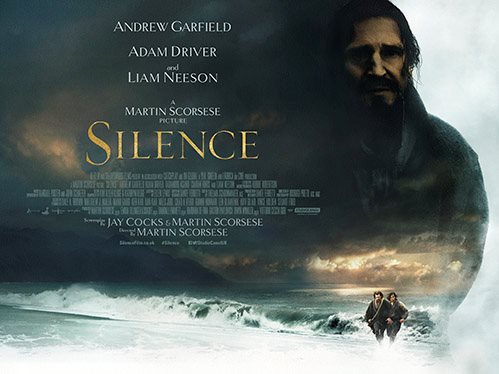Silence is a very challenging watch, in ways that are both intended and unintended. As the title may suggest this is a very still, sparse and silent film. It is a sombre, near three-hour meditation on faith, which is punctuated by some very disturbing scenes of torture. It is marked stylistically by its scarcity, and is a world away from the Scorsese mainstream audiences know for films such as Goodfellas and The Wolf of Wall Street.
Where those films burst with energy and incident, Silence is an altogether slower affair, delivered in a much more clinical manner. There is essentially no score and the camera moves slowly, if at all. This is incredibly effective when watching the many scenes of torture in the film. The lack of music and visual trickery forces you to be a silent observer to the cruelty. It makes for uncomfortable viewing and whilst Scorsese is known for his violent gangster films, the violence here is far more effective and disturbing than in any other film of his I’ve seen.
That being said, this approach does have its shortcomings. When the more punk-rock Scorsese does sneak through, most notably as the camera moves back and forth alongside the open slants of a prison cell, it jars with the rest of the film’s aesthetic. Furthermore, Scorsese’s approach is perhaps most testing in how it tests your patience, as this is an intimidatingly long film that moves at a very gradual pace. When the torture scenes are not disturbing you, chances are you’ll be bored by the rest of the film’s ponderousness.
There is also a central flaw right at the heart of this film, which pains me to say is the performance of Andrew Garfield. Since seeing him in The Social Network, Andrew Garfield has been one of my favourite actors. Interviews he has given for this film suggest he worked incredibly hard on it and that he has been changed as a person because of it. However, watching the film, I could not escape the feeling that the role was slightly beyond him.
Garfield has a boyishness that whilst appropriate for the character at the beginning of the film, is not beaten out of him by the end the way it should be. Furthermore, he is saddled with a Portuguese accent that distractingly wavers throughout. I say saddled as when Liam Neeson appears, also playing a Portuguese character, he speaks in his usual voice. This inconsistency frequently threatens to undermine the sincerity of both the performances and the dialogue.
One cannot help but wonder whether Adam Driver (who performs well in his limited screen time) would have been better in the lead, or even whether one of Scorsese’s favoured collaborators, Leonardo Dicaprio, may have been more suited to the role. Garfield is not bad in the film and he is one of the best in the business at conveying anguish. However, whilst Garfield can do anguish he can’t do Portuguese.
The real stars of the show come from the supporting Japanese cast. Yôsuke Kubozuka is fantastic as the untrustworthy Kichijiro, whilst Issei Ogata is superb as the villainous, ‘Inquisitor’. Meanwhile, the many extras who Garfield and Driver encounter as they go from village to village, lend the film a realism and emotional intensity which the leads frequently fail to provide.
Whilst understandable for commercial reasons to cast Garfield and Driver, given the strength of the Japanese cast, you wish Scorsese had been more true to the film and cast Portuguese actors. However, that is perhaps easier said than done and in the world of Hollywood funding even Martin Scorsese has to make compromises. It’s just a shame he didn’t compromise on length, as the film reminded me of The Return of the King’s multiple endings the more it dragged on and on.
Ultimately, Silence is a very testing watch. It is probably too slow for fans of Scorsese’s mainstream fare and perhaps too violent for more religious viewers who wouldn’t otherwise watch his work. It caters to commercial sensibilities in the casting of its lead roles, but doesn’t at all in its style or pacing. Having now seen the film, I can understand why it has struggled to score major awards nominations.
Due to the passion, intensity and filmmaking craft that is on display I cannot say Silence is a bad film. Particularly given the film’s strong supporting performances and disturbing scenes of torture. However, it has a miscast performance at the heart of it, is much too long and I must admit, for the most part, left me bored.
Closing Remarks
Movie Parliament Rating: MINORITY GOVERNMENT
By Movie Parliament Prime Minister,
Michael Dalton
What do you think? Have you seen, ‘Silence’? Give us your thoughts in the comments below.

 RSS Feed
RSS Feed
